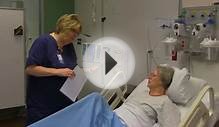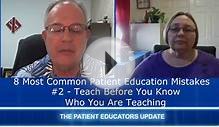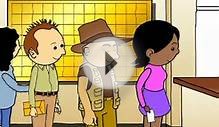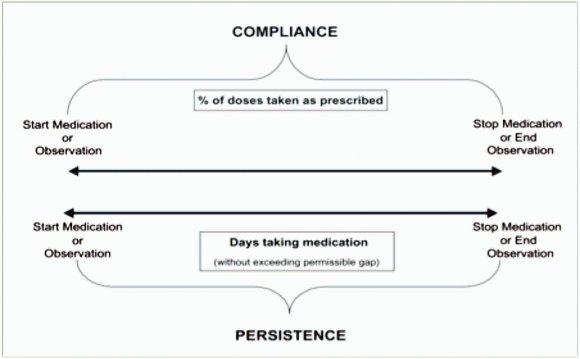
 See the opportunities and challenges healthcare organizations face in addressing the patient experience.
See the opportunities and challenges healthcare organizations face in addressing the patient experience.
Case Studies provide real stories of current efforts, including programs being initiated, practices being implemented, and outcomes being targeted and/or achieved. Case studies are presented as both an opportunity for learning from others as well as a spark for further ideas on how we work to improve the patient experience. If you have a case study to share please contact us.
Interested in receiving Patient Experience Monthly? .
Related Body of Knowledge courses: Communication.
NCH Healthcare System
www.NCHMD.org
What was the challenge, opportunity or issue we faced?
Improving our medication communication
The NCH vision is to provide clinical and service excellence with compassion to those we serve, and so it was extremely saddening to learn that many of our patients surveyed informed us that they did not know what their new medications were given for and what their possible side effects are. This trend did not match the way we perceived ourselves in the way we communicated about medications to our patients. But when the voice of our customers signaled this downward trend and knowing the other implications associated with their lack of knowledge about their medications, we knew we had to address this and quickly.
What we did to address it?
Standardized our process to communicate medication
In February 2010, a medication communication committee was formed with staff RN’s and pharmacy representatives. The committee very quickly identified 3 main attributing factors:
- Patients lack of knowledge is primarily with new medications they have never taken before,
- Our nursing teaching methods are inconsistent between nursing units, and
- We have 3 different resources for medication education materials accessible to RN’s.
- Educate all staff on the questions patients are being asked on the surveys (Press Ganey & HCAHPS).
- Standardize the source of patient medication education information.
- Discharge folder to contain specific medication education information & Q&A sheet (opportunity to write down questions directed to the RN or Dr. when not available. Reviewed by RN during rounds and responses are written down following a verbal response).
- Pharmacy created teaching cards with succinct and pertinent medication information on most commonly prescribed medications for that unit.
- Pharmacy led in-services for all unit nursing staff on effective medication teaching.
- Post discharge calls.
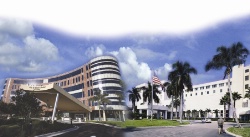 What outcomes are we achieving?
What outcomes are we achieving?
Improvement in medication communication
The committee has learned many lessons. The feedback from staff has been extremely valuable and proven to drive improvement further. The nursing staff informed the committee that they want more I.T. solutions; computerization of the medication teaching cards created by pharmacy; ability to print from the computer (we have a computer on wheels for every bed in our system). Physician feedback recommends that we provide scripting for nurses to use when engaging patients in a discussion around their new medication.
As far as patient feedback, although we only have one unit (6North) that has a few months (5) of data to reflect upon the results have been very impressive and worthy of continuing to implement on all of our inpatient units throughout the last quarter of this year. Our surveys data show increased mean and percentiles for 6North (higher than all other units) and our discharge call data also reflects an increase. More importantly, this improvement can also suggest that our patients are more likely to take their medications reducing the possible implications associated with their condition and not taking their prescribed medication, an outcome that is extremely important for us as a system in providing excellent clinical and service excellence with compassion for those we serve, across the continuum of care.
About NCH Healthcare System
The NCH Healthcare System is a not-for-profit, 501(c)(3) corporation serving Collier County and surrounding areas in SW Florida. NCH has evolved over the last fifty years, becoming one of the most progressive healthcare systems in the country, embracing new technology and evidence-based medicine. NCH offers a wide range of services, physicians and locations. More than just hospitals, the NCH Healthcare System is an alliance of over 630 physicians and medical facilities in dozens of locations throughout Southwest Florida.
In addition to our two hospitals, one in downtown Naples and one in North Naples, we are fighting cancer at the Oncology Services Department and heart disease with the Shick Heart Center's Code Save-A-Heart Program, through the use of explicit proven protocols, to save more lives. The Foglia Stroke Center located at NCH Naples Hospital was opened in February 2003 bringing innovative, intra-cranial clot busting techniques, dubbed the "Brain Attack Program", to victims of stroke. The General David H. and Shirley A. Baker Women & Children's Pavilion at the NCH North Naples Hospital, houses all obstetrical, newborn and pediatric services, and the NCH Healthcare System remains committed to providing quality family-centered maternity care. Inpatient pediatric services are provided in the Jay & Patty Baker Tower.
RELATED VIDEO
